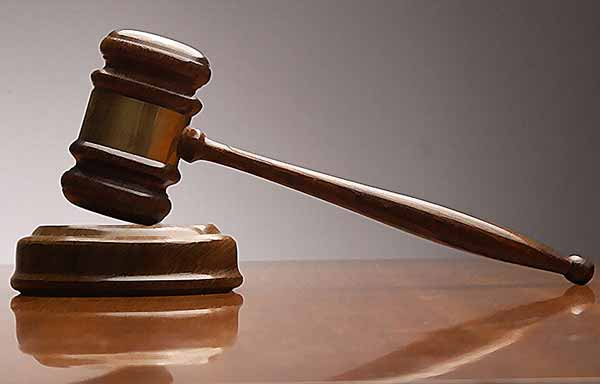The controversy on the ‘nationality’ of the former Vice President Atiku Abubakar and standard-bearer of the Peoples Democratic Party (PDP) in the February 23 presidential is still raging.
A man, who claims to be a close friend of Garba Abubakar, Atiku’s late father, alleged that neither of his parents was a Nigerian.
The unnamed family friend, in fresh documents filed by the All Progressives Congress (APC) before the Presidential Election Petition Tribunal in Abuja, also gave details of Atiku’s early years and how his father died.
But, Atiku declined to comment last night, saying he had earlier responded to the issue.
The deponent’s claim varies from that of Atiku, who insists that his parents were Nigerians.
It all started when the APC, in its response to Atiku’s petition at the tribunal, argued that he was not a Nigerian by birth.
Claiming that it possessed evidence to support its claim, the party alleged that because Atiku is not a Nigerian by birth, he was not qualified, under Section 131(a) of the Constitution to contest for the office of President.
Responding, Atiku said he was a Nigerian by birth because his parents were Nigerians.
“The parents of the 1st petitioner (Atiku) are both Fulani, a community/tribe indigenous to Nigeria.
“The 1st petitioner was born on 25th November, 1946 in Jada, Adamawa State by Nigerian parents and he is therefore a citizen of Nigeria by birth.
“The 1st petitioner’s mother, Aisha Kande was the grand-daughter of Inuwa Dutse who came to Jada as an itinerant trader too from Dutse in present day Jigawa State.
“The 1st petitioner’s father, Garba Atiku Abubakar was a Nigerian by birth who hailed from Wumo in present day Sokoto State while the mother, Aisha Kande was also a Nigerian who hailed from Dutse in present day Jigawa State.
But, in a statement filed by an APC witness, simply identified with the initials – ADM – the party repudiate Atiku’s claim.
The witness said: “l, ADM, adult, Nigerian citizen of Adamawa State do hereby make oath and say as follows:
“That I was a close family friend to the 1st petitioner’s late father. I know the family and I am familiar with the 1st petitioner’s background: who was born on the 25th day of November, 1946 to a Fulani trader and farmer by name Garba Abubakar, from his second wife, Aisha Kande, in Jada village of Northern Cameroon.
“I know the 1st petitioner was named after his paternal grandfather, Atiku Abdulkadir and became the only child of his parents after his only sister died at infancy.
“I also know about the unfortunate incidence of the death of the 1st petitioner’s father in 1957, who drowned while crossing a river to Toungo. a neighbouring village to Jada in Northern Cameroon.
“I do know that the 1st petitioner has, in all his documentations that are made public in national dailies or official gazettes, stated that he hails from Jada town in Adamawa State, from Ganye Local Government Area, regarded as the mother of the whole Chamba ethnic group (Chamba tribe).
“I know as a fact that, as at the time the 1st petitioner was born on the 25th day of November, 1946 to a FulanI trader and farmer, Garba Abubakar, Jada village and other parts of Chamba land in the then Northern Cameroon, were still part of the British Cameroons and not Nigeria.
“None of the 1st petitioner’s parents or grandparents was born in Nigeria.
“The 1st petitioner‘s father died as a citizen of Northern Cameroon in 1957 prior to the referendum of 1st June, 1961 which made Northern Cameroon to become part of Nigeria.
“The 1st petitioner’s ancestral origin is deeply rooted in the then Northern Cameroon, not Nigeria and I know as a fact that the 1st petitioner is not a Nigerian citizen by birth
“I know that Ganye which incorporates the 1st petitioner’s birth place of Jada, was the headquarters of British Cameroons, but it joined Nigeria after the plebiscite.
“I know that Ganye was not part of Nigeria as at the time of the birth of the 1st petitioner; on 25th November 1946.
“I am familiar with the historical antecedents of the birth place of the 1st petitioner.
“Ganye area had been entrusted to Britain by a League of Nations Mandate in 1919 and later as Trust Territory by the United Nations in 1946.
“With the defeat of Germany in World War I. Kamerun (as it was known at the time) became a League of Nations Mandate Territory and was split into French Cameroons and British Cameroons in 1919
“While France integrated the economy of its part of the Cameroons with that of the mother colonial France, the British on the other hand, administered its part (British Cameroons) from neighbouring Nigeria, making Jada, the 1st petitioner’s place of birth, a British franchise.
“I know that a plebiscite was held in British Cameroons to determine whether the people in that territory preferred to stay in Cameroon or unite with Nigeria.
“While Northern Cameroon preferred a union with Nigeria, the Southern Cameroon chose to align with the mother country.
“I know that on the 1st of June 1961, Northern Cameroon became a part of Nigeria and on the 1st of October 1961 the Southern Cameroonian territory dissolved and merged into the Republic of Cameroon.”
An aide to Atiku told The Nation last night that his principal would not respond to the issue.
According to the aide, the PDP president candidate had responded to the controversies stirred by the APC on his nationality.
Faulting the APC claim that he is not a Nigerian by birth and, therefore, not fit to be President, the former vice president, said he is a Nigerian by birth and was born on November 25, 1946 in Jada, Adamawa State by Nigerian parents.
He made the assertion in a joint reply he filed with his party to the APC’s response against their petition before the tribunal.
Atiku, who gave details of his early life, also spoke about his working life and political career to support his claim that he is a Nigerian by birth.
Atiku and the PDP argued that it was late in the day for the APC to query his qualification for the election, having not done so at the pre-election stage.




